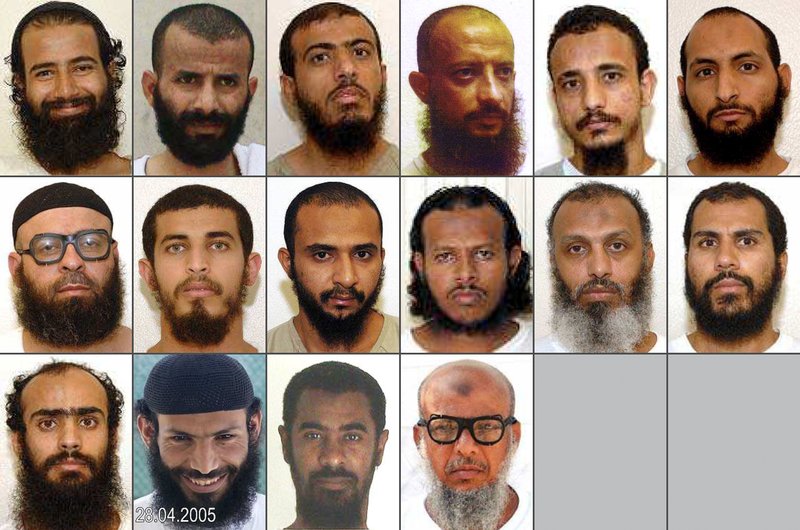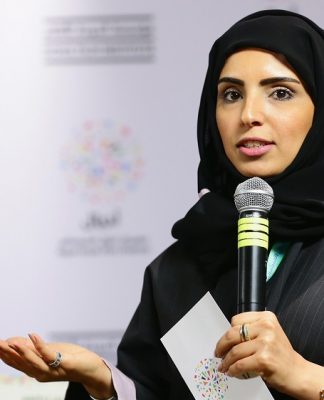
16 of the 18 Yemeni prisoners transferred by the United States years ago to the UAE, “The Associated Press”
The Associated Press, a global news agency, published a report saying that the United States had promised former Guantanamo detainees to send them to an Islamic country to rehabilitate and help them integrate into society, opening the way for them to get jobs, money and marry, according to their lawyers and families, but that was nothing more than a lie .
According to the report translated by Al-Sharq, Russia and 18 Yemenis who were deported from Afghanistan and Pakistan after the September 11 attacks have been held in the UAE for nearly five years, and in short phone calls from undeclared locations in the UAE, including a notorious prison known for practicing torture, the detainees whispered to their families. That the situation in the Emirati prisons is worse than the Guantanamo prison they wished to have returned to despite the bad conditions inside.
The report added that when one of the detainees complained about “pressure” three years ago, the call was cut off and nothing has been heard from him since then, and when the Russian began a hunger strike, he was placed in solitary confinement and was beaten, indicating that there are now plans to send them to Yemen where they feared Their families are treated worse than they were subjected to in the UAE detention centers.
While a high-ranking Yemeni government official confirmed that the plans are pending security arrangements, a State Department official indicated that the US government was aware of this happening, and the two officials spoke on condition of anonymity because they are not authorized to speak to the media.
For their part, United Nations human rights experts described the deportation of detainees to Yemen as a “forced return”, warning that it violates international laws, as their destination will be a poor Arab country destroyed by a raging civil war over the past six years. Torture and arbitrary detention are also widespread in The networks of secret and official prisons run by different factions that control different regions of the country.
“We fear that they will be shot dead or arrested as soon as they set foot on the land of Yemen,” said the family of one of the detainees, Salim. Sudan in 2012 before emerging as the leader of “Al Qaeda” in Yemen two years later.
President Barack Obama had pressed to close Guantanamo Bay amid opposition from Congress, and the plan was to prosecute some of the detainees and continue to detain others without charges while their cases are evaluated by the review boards, and those who are no longer considered dangerous will be transferred to their home countries or third countries. .
But Trump had another plan and announced, before assuming the presidency, in a tweet to him, “No new releases from Guantanamo.”
The terms of the agreements concluded by the United States with the Emirates and dozens of other countries that have received Guantanamo detainees have not been announced, but Ian Moss, the former chief of staff of the State Department’s envoy to Guantanamo, said: “We wanted these individuals after their release to have a new beginning in life. Their arrest is part of the deal. “
Lee Wusky, the special envoy to close Guantánamo from 2015 to 2017, the period during which the Yemenis were transferred to the UAE, said in an email: “I can categorically deny that there is a plan to keep the men in detention after their transfer from prisons in the United States. .
Katie Taylor, deputy director of the UK-based Reprive organization and coordinator of the “Life After Guantánamo” project within the organization, explained to the Associated Press that after documenting the lives of nearly 60 former detainees in 25 countries, “I must say that The situation faced by individuals who have been resettled in the UAE is among the worst and most worrying.
“His name and the full names of all Yemeni detainees were withheld so that they would not be punished,” said attorney Patricia Bronte, attorney for one of the detainees, noting that State Department officials told her and the detainees that they would be held for 6 to 12 months in a rehabilitation facility, and then they would be allowed to join their families. In the UAE, the sign “From the beginning, none of these pledges have been fulfilled.”
The detainees’ families say that their communication with their sons was scarce and alarming, as Abdo, 41, told his brother Ahmed that he spent 70 days in solitary confinement – blindfolded and handcuffed and handcuffed by chains on the ground – upon his arrival in the Emirates. ”His brother also denied receiving Prisoners have no rehabilitation sessions Abdu and other detainees moved to a “dirty and dark prison” for 16 months
Ahmed quoted his brother Abdo as saying, “The situation was horrific there.” He was later transferred to Al-Razeen prison, which is located 200 kilometers (125 miles) from Dubai, where human rights groups documented violations and torture, and in the spring of 2019, Abdo was brought back to the “dirty” prison where he is still there, as the brother on Abdo said: “This is not what I thought, I hope to go back to Guantanamo … The situation is 1,000 times worse here.” Then the phone call dropped.
As for Bear, a 41-year-old nurse, described by the Board of Regular Review at Guantánamo in 2015 as a “not terribly militant Yemeni”, was arrested in a Pakistani raid in September 2002 and transferred to Guantánamo. His brother Hussein said that despite Previous promises of a new life, his brother ended up in “mysterious circumstances.” We do not know anything about him, “adding,” He still lives behind bars with other Yemeni detainees, who face the most horrific injustices in history, and during his phone calls every 10 days, he says nothing but: (How are you?), He cannot speak. They are forbidden to speak. “
As for Rival Mingazov, a ballerina and former army recruiter, who was the only Russian remaining in Guantánamo when he was sent to the UAE, Mingazov had never met his 19-year-old son Yusef who lives in London, but they talk on the phone. Yusef said his father was He complained of being humiliated and deprived of food and medicine in prisons. His mother, Zoria Faliolina, said that her son wants to return to Guantánamo, because “the situation is better there”.
The family of Abd al-Rab, (44 years), indicated that he disappeared three years ago after two phone calls during which he complained about the conditions inside the prison, when he complained in one of the calls, saying: I am under pressure … Guantánamo was much better. A billion times. ”He dropped the call, and he did not call again. His family members said they did not know if he was alive.
Hamidullah, another detainee, lived to inform the Agency about his prison conditions in the UAE. He spent three and a half years in UAE prisons before being returned to Afghanistan in December. Hamidullah’s special advisor wrote that his client was a “model detainee” and a “peaceful man” and was never a member of The Taliban, and “the fact of the matter is that he was imprisoned by the Taliban in the late 1990s.”
After his return to Afghanistan, Hamidullah gave more details about his prison. He said that the guards used to force him to take off his clothes every time he went to the bathroom. They used to hold his shoulders cruelly and put his head down while they pulled him out of the cell, adding, “It was psychological torture.”
Hamidullah passed away in May, after only four months of freedom and nearly 20 years of detention, and his family believes that the conditions he suffered in UAE prisons were the cause of his death.






























